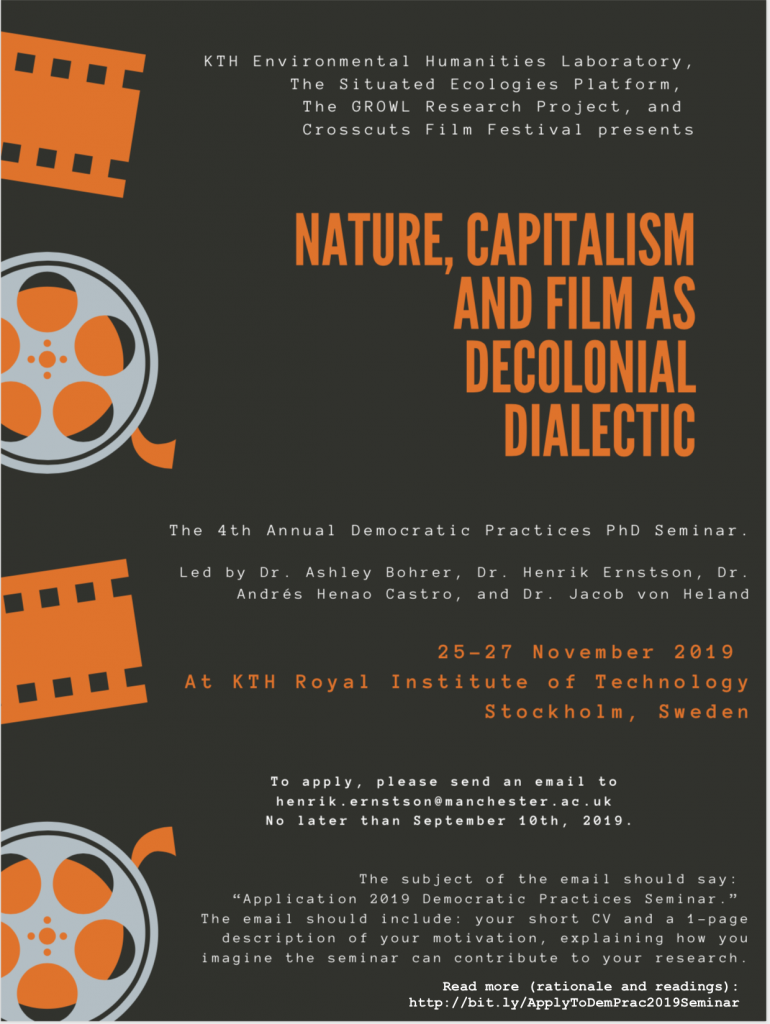DemPrac2019 — Nature, Capitalism, and Film as Decolonial Dialectic
The 4th Annual Democratic Practices PhD Seminar, 25-27 November 2019 is being held in Stockholm, Sweden, just after the Crosscuts Film Festival. All participants have free access to the film festival.
We start at 09:00 on 25 November 2019 in the Main Seminar Room at KTH Division of History of Science Technology and Environment, Teknikringen 74D, Plane 4 (two flight of stairs as you enter the building). Subway station “Tekniska högskolan.” On Wednesday we will change venue to Fanzingo in Norsborg, South of Stockholm, which takes about 45 minutes with subway and walking. Map and directions below. Contact: Henrik Ernstson, +447596133469 (WhatsApp). For emergencies (as always), call 112.
There are pre-activities from Crosscuts at Hornstull integrated into the course: 1) Masterclass with Trinh T. Minh-ha on Sunday 24 November 10:00-13:00 at BioRio; 2) Film “Forgetting Vietnam” Sunday 24 November 14:00-15:30; 3) Film “Reassemblage” Monday 25 November 18:00-20:30 at Bio Victor, Cinemateket. If you are in Stockholm early, there is also The Annals of Crosscuts on Friday 22 November and Saturday 23 November that we really encourage you to participate in. All details and venues below.
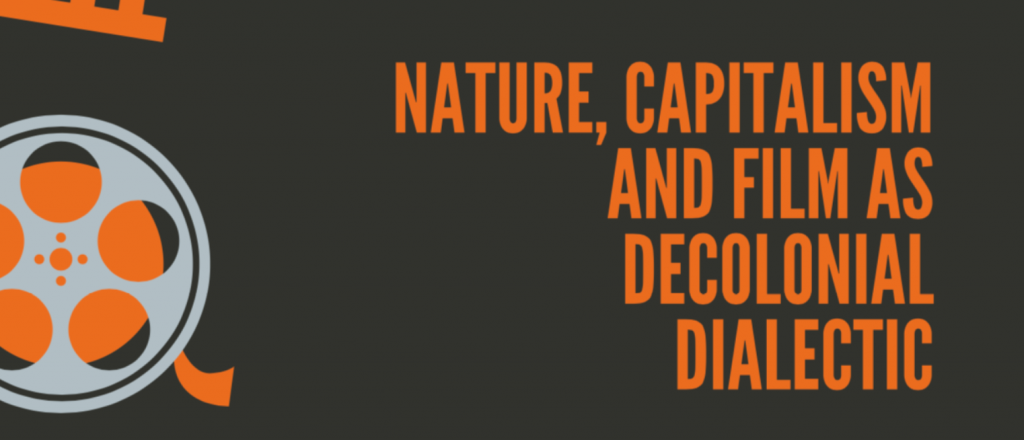
Course Description
The Democratic Practices Annual Seminar series has taken place since 2015 at the University of Cape Town, combining political philosophy and radical democratic theory with an interest in global south urbanization as spaces of inequality and possibility. This year we combine it with the Crosscuts Environmental Humanities Festival for Film & Text (22-24 Nov) to offer a timely opportunity to reflect on how film, as medium and practice, can offer a critical and democratic and/or decolonial practice. The seminar aims to provide tools and concepts to rethink your ongoing research and projects.
The Seminar will be led by Dr. Henrik Ernstson, political ecologist at The University of Manchester & KTH, Dr. Ashley Bohrer, intersectional feminist from the University of Notre Dame, and Dr. Andrés Fabián Henao Castro, political philosopher from University of Massachusetts Boston. Dr. Jacob von Heland, film-maker and Chief Editor for Crosscuts, will also join.
There are no costs to take the seminar and all accepted participants have free entrance to the Crosscuts Film Festival. For details on how to find accommodation and getting around Stockholm, see below.
The PhD seminar is organised by The Situated Ecologies Platform. Hosted with venue at KTH Environmental Humanities Laboratory and funds from GROWL: Grounding and Worlding Urban Infrastructures Research Project, Visual Environmental Humanities, and Crosscuts.
Rationale and Aims
This year’s seminar will focus on understanding capitalism in unequal geographies (as in previous years), but also include a critical conversation about film as artistic medium and critical practice. Main questions will be:
- How does capitalism function in and through its differences across time, space, and social location?
- How does capitalism interact with and structure gender, race, and sexuality?
- What use can the critique of capitalism offer for connecting systems of injustice and oppression?
- How do films and film-making contribute to the performance of that critique?
- The seminar will unfold through a series of conversations that focus on reading the raced, gendered, and sexualized implications of some of the most crucial structures and concepts of capitalism.
During the first two days we will focus on primitive accumulation and nature. Dr Ashley Bohrer and Dr. Andrés Henao Castro will frame the seminar. They will facilitate an exploration of both the classical Marxist understanding of these concepts as well as the way in which contemporary thinkers of race, gender, sexuality, and their inter-relations have expanded, revised, and, in the words of Frantz Fanon, ‘stretched’ these concepts in order to speak more directly to the lived experience of oppression. This foregrounds multiple vectors of difference and we ask, for example: What role does the racialization of the body play in the capitalist division of use-value from exchange-value? How is the social alienation of labor differentially experienced across gender differences, and in what ways do different modalities of gender assignation/regulation alienate one’s labor? The readings for each day are chosen to provoke questions about how the concepts of primitive accumulation and nature structure geography, space and the city, tying this to discussions about reproductive labour, settler colonialism, and imperial remains.
The third day will focus on how film and cinematic ethnography can be a radical democratic and decolonial dialectic for critique and practice.”] With the aim to make linkages between the critical framework we have elaborated during the first two days, Dr. Jacob von Heland, Chief Editor of Crosscuts, will join Dr. Henrik Ernstson to frame the seminar. In particular we will focus on the work of postcolonial filmmaker and writer Trinh T. Minh-ha and join her Masterclass (on Sunday 24 November free of charge) at Crosscuts and watch two of her films in the cinema theatre (free of charge) plus one more film. In the seminar we will link the experience of watching the films with the chosen texts to elaborate how film and text relate to each other as critical practice. Jacob and Henrik will also draw upon their experiences of developing a film-based critical practice in the environmental humanities including their cinematic ethnography “One Table Two Elephants” (84 minutes, 2018, CPH-DOX) on knowledge politics in postcolonial cities filmed in Cape Town, the upcoming “Provincializing Malfeasance” on property filmed in eThekwini/Durban, and efforts of developing a peer-review publication format for film-based research. We strongly recommend that you also take the opportunity to participate in other activities at Crosscuts, including a film with keynote by Saskia Sassen, the film “Badiou” by the Kalyan brothers, and in particular The Annals of Crosscuts, a peer-review film format, to provide support and discuss film-makers who are also researchers. As a seminar participant you will have free admission to Crosscuts.
Note that on the third day we will change venue to Fanzingo lying South of Stockholm some 40-50 minutes with subway and walking. Map below.[/expand]
Across the three days, we hope to create a space for reflection and discussion on how differences produced and constitutive of capitalism feed off each other to produce forms of oppression. We do this to help historicize a mode of production, demarcate beginnings, imagine ruptures and emancipatory imaginaries. The space will be a chance to rethink foundational aspects of your research, studies and projects.
There is no cost to participate in the Seminar. You will also have free admission to Crosscuts. We will offer coffee and tee, and a light lunch one of the days. All other costs are paid by you. This year we have unfortunately no travel bursaries.
Readings
We will meet for 3-4 hours every day in the morning (9:00-13:00/14:00). One of us will frame the seminar during the first 30 minutes: what is at stake; main points of the readings; and where does the texts/films stand in wider intellectual debates. This framing is meant to serve as departure points and provocations towards an engaged discussion, but also facilitate an interdisciplinary group to engage with the texts and films.
Each day we will have a 30 minute break some two hours into the seminar and then we will return for another session. Coffee and tea will be served during the seminar.
Day 1 [Monday] at KTH: Primitive Accumulation (9:00-13:00)
Through a discussion of Marx’ concept of primitive accumulation, we will investigate capitalism’s relationship to that which it frames as its exteriority in both temporal and spatial terms, in order to then interrogate the subject-positionalities that are implicated and potential ways of rethinking that concept today.
Readings
- Karl Marx. 2006. “Chapters 26, 27, 28, and 33.” In Capital Vol. I. New York: Penguin.
- Saskia Sassen, 2010. “A Savage Sorting of Winners and Losers: Contemporary Versions of Primitive Accumulation.” In Globalizations 7 (1-2): 23-50. NB! Saskia Sassen is a Guest of Honour and Keynote speaker at Crosscuts.
- Federici, Silvia. 2004. “Introduction.” In Caliban and the Witch: Women, the Body, and Primitive Accumulation. New York: Autonomedia.
- Fiona C. Ross. 2015. “Raw Life and Respectability.” Current Anthropology 56 (S11): S97–107.
Day 2 [Tuesday] at KTH: Nature (9:00-14:00)
The second day is devoted to an interrogation of nature’s place within capitalism, the relationship between the human, the non-human, and technology, and the intersectional history of those socially constructed categories and their contested understandings.
Readings
- Karl Marx. 1993. “Fragment on the Machines.” Grundrisse: Foundations of the Critique of Political Economy. New York: Penguin. (Notebook VI, Notebook VII) p. 690-712. (NB: In the uploaded PDF, the reading starts in the middle of the page with some blank pages in the middle.)
- Jason Moore. 2015. Capitalism in the Web of Life. New York: Verso. Introduction (pp. 1-32) and Chapter 7 (pp. 169-192).
- Françoise Vergès. 2017. “Racial Capitalocene.” Futures of Black Radicalism, edited by Gaye Theresa Johnson and Alex Lubin, 72-82. London: Verso.
Note: There will be a social gathering at a Pub/Bar at 18:00 (Place TBD).
Day 3 [Wednesday] at Fanzingo: Film as Democratic and/or Decolonial Dialectic? (9:00-14:00)
The last day brings the two previous days together in a discussion on film as a practice and form to understand capitalism in unequal geographies. This will paired with the question of what a decolonial and democratic practice of using film could mean. We will meet at 09:00 at Fanzingo, Rotemannavägen 12, Norsborg, an association with film screening capacity. It takes about 40-50 minutes by subway and walking. See map below.
Preparation A. Masterclass by Trinh T. Minh-ha (details below).
Preparation B. Films (details below)
- “Forgetting Vietnam” by Trinh T. Minh-ha (2015)
- “Reassemblage” by Trinh T. Minh-ha (1982)
- “W.R.: Mysteries of the Organism” by Dušan Makavejev (1971)
Preparation C. Readings
- Minh-ha, Trinh T. 1992. “Speaking Nearby: An interview” Visual Anthropology Review 8 (1): 82–91 — 10 pages.
- Stoler, Ann Laura. 2016. “Colonial Aphasia: Disabled Histories and Race in France.” In Duress: Colonial Durabilities in Our Time, 122–69. Durham and London: Duke University Press. — 35 pages.
- Mbembe, Achille. 2019. “Thoughts on the Planetary: An Interview.” New Frame, no. November — 10 pages
- Minh-ha, Trinh T. 2016. “Interval of Resistance,” with Empty Chair, Image under Erasure, Lotus bombed. In Lovecidal. — 13 pages.
Encouraged Preparation D. The Annals of Crosscuts
There is a truly exciting opportunity to discuss and support film-as-research in The Annals of Crosscuts! For those in Stockholm, we truly encourage you to participate on Friday 22 November (09:00-15:00 at BioRio) and Saturday 23 November (09:30-15:30 at BioRio). All films have undergone a blind peer-review process and been accepted for publication by the international editorial group under the Crosscut’s theme “Ruptured Times.” This includes several world premieres and every screening will be followed by discussions between filmmakers, editors and reviewers. For all films see the programme here. This is a chance to support often young film-makers, researchers and activists with your presence, questions and engagement. Please do.
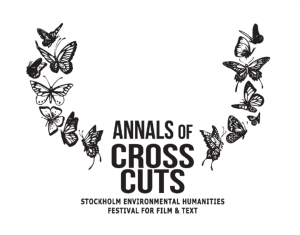
Guidance for reading & watching [important preparation]
Below we provide a formulation of the central problem and a set of questions. We hope this can guide and support your reading. We strongly recommend that you commit to active reading, focusing on some of these questions and take notes and tries to answer them as best you can. There is of course no obligation to try to answer all the questions, but all of them provide guidance. Interpretations that may lie outside of these questions are also welcome but we the questions are there to bring focus to our gathering. If you find passages and quotes in the texts that illustrates your thinking, then note the page number so you can easily bring everybody to that page in the seminar. If we all commit to our reading, the seminar will award us all.
Day 1 [Monday] at KTH: Primitive Accumulation
1. Formulation of the problem
This day we focus on a discussion of Karl Marx’ concept of primitive accumulation. We will investigate how it has historically and traditionally been defined and understood—but we will also turn our attention to how it has been received today in contemporary theoretical discussions. Our objective is to investigate capitalism’s relationship to that which it frames as its exteriority in both temporal and spatial terms. We are interested in analyzing the original concept and how it has been recently mobilized in order to illuminate other aspects of capitalism, understand subjectivity, and qualify specific forms of violence. We are also interested in how subject-positionalities are shaped by primitive accumulation, and how the same subject-positionalities can intervene, act back and disturb its logic. With subject-positionalities we here mean the social and political context and experiences that creates your identity in terms of how race, class, gender, sexuality, and ability intersects, which also influences, and potentially biases, your understanding of the world. (For those who would like to have more understanding of what a concept like positionality means, please try reading this short article on “Feminist perspectives on the body.”)
2. Guiding questions for the reading:
a. Based on reading Karl Marx’s texts:
- What would it mean to take primitive accumulation as something that is ongoing, taking place today, and here among us? The term “primitive accumulation” is often seen as a historical term to explain the origins and preconditions of capitalism, as something that happened “before,” “in the past,” “over there,” or “to them”—in the colonies, to the workers, to the slaves. What if we refuse this historical emphasis and seek to understand it as an ongoing logic of accumulation by dispossession instead?
- How should we then view the relationship between primitive accumulation and settler colonialism? Can we then understand the latter as a process rather than as an event?
- What is the relationship between the colonial violence at work in primitive accumulation and the more concealed forms of violence that takes place when capitalism exploits waged-labour instead?
- To follow the tradition of Democratic Practices and our previous discussions of Jacques Rancière (DemPrac2015: Day 4), what if we place the answers to some of these questions in relation to urbanization: How does Marx’s concept of primitive accumulation help us to better understand proper politics and political urbanism as a radical democratic practice that ruptures a policed order in the name of equality?
b. Based on Saskia Sassen’s work:
- How does neoliberalism affect primitive accumulation?
- Does it intensify its dynamics of territorial expropriation? Does it produce, as Sassen claims, a new kind of subject that is no longer excluded but expulsed instead?
- To what does neoliberalism give continuity in relation to the primitive accumulation of capital?
- And alternatively: In what ways have the old colonial dynamics of primitive accumulation changed under neoliberalism? How do we recognize change and repetition, continuity and novelty, and what ways of speaking and naming these do we get from Sassen?
- What is the place of indigenous peoples under the contemporary versions of primitive accumulation that Sassen investigates?
- How does Sassen’s analysis of contemporary versions of primitive accumulation help us to reframe ecological critiques of capitalism?
c. Based on the work of Silvia Federici:
- What are the political implications of having a gender-differentiated account of primitive accumulation? Federici narrates how primitive accumulation affected women and men in different ways and thus also the cultural categories of “woman” and “man” (cf. Judith Butler and Donna Harraway, see here.) This effects our society today. How does this effect politics?
- How does Federici’s intersectional understanding of primitive accumulation broaden our analysis of contemporary capitalism and anti-capitalist strategies of power?
- How does Federici’s more Foucauldian attention to the technologies of the body productively intersect with Marx’s critical understanding of capitalism?
- How does Federici’s historical work help us to envision new eco-feminist responses to capitalism?
d. Based on the work of Fiona Ross:
- In what ways do Ross’s discussion of “rawness” relate to the violence of “primitive accumulation?”
- What does reading Ross’s work together with Federici’s tell us about “insurgent feminism”? (For some reading on this term, see its role in the Colombian peace process from 2017, here_1, here_2, and here_3).
- Is the concept of “bareness” a useful political grammar by which to counteract the violence of primitive accumulation?
e. Finally, try to relate the term to your own research. Take notes on:
- How does the concept of primitive accumulation relate to your research project?
- How does the concept, and its reception, help you to complicate, interrogate, and problematize your research questions? What new research questions might come to you as you are doing this intellectual work?
- How might your research speak back to this conceptual category? How does your research trouble how we understand it and its usefulness for analysis and struggle?
Day 2 [Tuesday] at KTH: Nature
1. Formulation of the problem
Our objective this day is to interrogate the place of nature within capitalism. We are equally interested in analysing the relationship between the human and the non-human, which includes the machine, the cyborg, the human-as-nature, and other formulations. We are also interested in analysing the ways in which broader processes of colonialism and imperialism are at the heart of what is otherwise neutrally referred to as the “anthropocene.” Our intention is to evaluate how alternative framings of humanity’s power to geologically modify the earth can politicize or depoliticize capitalism. We want to understand how theoretical framings have agential implications, as in whose knowledge-production and political practice gets accentuated and silenced? We also want to link back to Day 1 and revisit the concept of primitive accumulation and analyse what happens to that concept when we resituate it’s analytic within the questions of the Capitalocene. (For a critical review, see discussions on “the anthropo-obscene” here and here.)
2. Leading questions to guide the reading:
a. Based on Karl Marx’s work:
- How does capital’s technological transformations affect our understandings of nature?
- How does the capitalist relationship between labour and machines affect the relationship between humans and nature?
- If we understand nature as socially constructed (i.e., as a cyborg where ‘the social’ cannot be separated out from ‘the material’ and vice versa) then: What social constructions of nature gain and loses prominence when we focus on how capitalist accumulation is always also gendered, i.e., that capitalism affects women, men, and other identities in different ways?
b. Based on the work of Jason W. Moore:
- How can the “double internality” that Moore proposes help us analytically to better frame and understand the eco-feminist critique of capitalism?
- How does the concept of the Capitalocene complicate the concept of the Anthropocene?
- How does primitive accumulation figure in the double internality and in the concept of the Capitalocene?
c. Based on the work of Françoise Vergès:
- What does the concept of the “racial Capitalocene” adds to Moore’s concept of the “Capitalocene”?
- In what ways does Vergès’ project speak to a decolonialist, feminist, and environmentalist critique of capitalism?
- Whose knowledge are credited in the development of the “racial Capitalocene”—and why is it that epistemological grounding is politically relevant?
- How does primitive accumulation, and the questions that it generates (from the readings of Day 1), resurface in the problems that the framework of the “racial Capitalocene” invites us to analyze? So, try to here make connections between different readings.
d. Furthermore, and based on all readings, try to situate the readings in relation to your own work:
- If we think of capitalism as a global structure, as a totality, how do you analyze the interaction of primitive accumulation to nature in specific realities in your research project?
- How do you see these different processes materialize in urban spaces?
- How does the concept of nature, and its reception, help you to complicate, interrogate, and problematize your research questions?
- How does your research speak back to the conceptual categories of “socially constructed nature,” “the Capitalocene,” and “racial Capitalocene”?
Day 3 [Wednesday] at Fanzingo: Film as Democratic and/or Decolonial Dialectic?
We will interrogate capitalism through the use of film. We will draw upon our previous two days of discussions about primitive accumulation as that which capitalism frames as its necessary outside both as knowledge, agency and land/nature (from Day 1 and Day 2). In particular, the films and readings we have chosen foreground, in different ways, colonization and coloniality as the specific lens through which capitalism established particular forms of value, knowledge, and exploitation—and how such normalized and hegemonic orders can be ruptured or disturbed. (For a foundational text on decolonization, see Tuck and Yang’s “decolonization is not a metaphor,” from 2012, which is attached as additional reading.)
For this we have provided three films and four texts that we want you to watch and read—and (for those who can)—join the Masterclass with Trinh T. Minh-ha and The Annals of Crosscuts. Given this, the seminar will centre on two main themes:
- Film as practice (materiality, techniques, montage, screening etc.)
- The conditions under which a democratic and/or decolonial dialectic through film might be produced.
For the first theme, we want you to start by looking at three simple photos:




The notebook-with-pen, the voice recorder, and the film camera have all been used by critical scholars as technologies to register the world. As companions and devices which can be carried around they mediate the relation between scholars (their bodies and subject-positionalities) and places, people and things to produce a specific location from where to engage the world and to produce different artefacts that can be shared and circulated: the text, the sound, the film. The film camera and the moving image (in reality a series of still images that flashes by in front of the eye with sound), we suggest, places critical practice in a different relation to its object and its subject than that of the notebook and the pen. While scholarly practice and academia has been structured around the text as the main register through which we think critically, we here want to lay the same burden and responsibility upon film: How to thinkcriticallythrough film? How to think freedom and equality through film?
Indeed, in watching the films and reading the texts, we want you to take notes around the following four sets of guiding questions:
- What is the difference (based on your experience when watching the films) of thinking with text and thinking with film? Is this difference important? Why? Provide examples from the films.
- What is the critical potentiality of film-as-research in relation to democratic practices? That is to say: What role can film play as part of a practice that seeks to interrupt normalized policed orders to make visible, hearable, and sensible the practice and horizon of equality and freedom (Balibar’s egaliberté; Fanon’s writing “for a new humanism,” “a new man”)? What does this mean in terms of decolonial dialectic?
- How might film stand in relation to text in such democratic practices and/or a decolonial dialect? What techniques and modes of working can make film a complementary and equally potent mode of thinking? How might this relate to your own research project?
- Does it matter for these questions that the world today is fully immersed in images like never before? What does the explosion of digital video do to these questions?
These guiding questions aims to guide your engagement with the material. If you find other questions important, please add them and take notes.
With these four guiding sets of questions, we have three parts for you to prepare.
Preparation A: Masterclass.
First we want you to take the Masterclass with Trinh T. Minh-ha as already discussed (Sunday 24 Nov 2019 at 10:00 to 13:00, BioRio, Hornstulls strand 3. Some of you cannot be there which is fine. Note that the Masterclass is free but if you want the breakfast you will need to pay 100 kr. The actual Masterclass starts at 10.30. Please make sure to be on time. Say your name and you will be let in. (Read more in this post which was sent out.)
Preparation B: Films
We have selected three films. Two from Trinh T. Minh-ha which we will watch on Sunday and Monday in the movie theatre, respectively, and one quite different by Dušan Makavejev which you will watch at home (link below):
- FILM 1: “Forgetting Vietnam” by Trinh T. Minh-ha (Sunday 24 November 2019, 14:00-15:30 at BioRio at Crosscuts, Hornstulls strand 3, Stockholm)
- This film uses montage techniques to mix footage from 1995 and in 2012. As such the film “Forgetting Vietnam” creates a dialogue between land and water, the two elements that forms the Vietnamese term for “country.” Through folksongs, popular and classical music as well as through local people’s voices—via insurgent poetry, sayings and everyday comments—the film comments on the residue of one of America’s most divisive wars, and its ongoing presence and simultaneous absence in our historical reckoning.
- Read Stoler (2016) for theoretical input here and the idea of “imperial remains” and “colonial aphasia.”
- FILM 2: “Reassemblage” by Trinh T. Minh-ha (1982) (Monday 25 November 2019, 18:00-19:30 at Bio Victor, Cinemateket, Borgvägen 5, Stockholm. Moderated conversation with Minh-ha after the film.)
- “I do not wish to speak about, but nearby,” says Trinh T. Minh-ha in the opening sequence of this film. This links to the reading we have selected (Minh-ha 1992).
- Be observant who gets to speak in this film and how such voice is created through the film. Do you agree with what Minh-ha seems to imply, that this exemplifies multivocality that decentres the centre, the hegemonic? How is the medium of film active in creating this effect?
- FILM 3: “W.R.: Mysteries of the Organism” by Dušan Makavejev (1971). Watch it by yourself. Here is a link to an okay version.
- This 1971 film by Yugoslavian director Dušan Makavejev mixes documentary material about the controversial life and work of Austrian-American psychoanalyst Wilhelm Reich (1897–1957) with a fiction story about a woman in communist Yugoslavia. The film incessantly disrupts utopian possibilities, be that communist or capitalist.
- In thinking with film as a democratic or decolonial dialectic, what does this film bring?
Preparation C: Readings.
- Minh-ha, Trinh T. 1992. “Speaking Nearby: An interview” Visual Anthropology Review 8 (1): 82–91 – 10 pages.
- In this interview Minh-ha speaks about the making of “Reassmeblage” but also provides some background to her background and wider interests.
- What is provided here in terms of thinking about conditions for democratic and/or decolonial dialectics?
- Stoler, Ann Laura. 2016. “Colonial Aphasia: Disabled Histories and Race in France.” In Duress: Colonial Durabilities in Our Time, 122–69. Durham and London: Duke University Press. – circa 35 pages.
- Empirically this is about France and theoretically about the configuration of silence or occlusion, which speaks directly to the practice of film as “writing in light.”
- Mbembe, Achille. 2019. “Thoughts on the Planetary: An Interview.” New Frame, no. November: 1–25.
- Mbembe offers a wide-ranging account of how colonization has morphed from extractive and enslaving colonialism to “computational capitalism” today.
- Minh-ha, Trinh T. 2016. “Interval of Resistance,” with Empty Chair, Image under Erasure, Lotus bombed. In Lovecidal.
- What does love mean? What is solidarity and where does it take us? Where can it take us?
D. Participate in The Annals of Crosscuts (exciting opportunity)
Support several young film makers and researchers with your presence, questions and engagement at The Annals of Crosscuts on Friday and Saturday. Programme has been sent out.
Finally, some key quotes to think with from the readings:
Ann Laura Stoler (2016: 128): In direct relation to the physical and epistemological violence of colonization and its active remains, Stoler develops the key term of “colonial aphasia,” stating that it is “an occlusion of knowledge,” which is not “a matter of ignorance or absence,” but “aphasia is a dismembering, a difficulty in speaking, a difficulty in generating a vocabulary that associates appropriate words and concepts to appropriate things” (Stoler 2016: 128).
Achille Mbembe (2019: 3): “There is an explicit kinship between plantation slavery, colonial predation and contemporary forms of resource extraction and appropriation. […] An important difference is the technological escalation that has led to the emergence of computational capitalism in our times. We are no longer in the era of the machine but in the age of the algorithm. Technological escalation, in turn, is threatening to turn us all into artefacts – what I have called elsewhere “the becoming-black-of-the world” – and to make redundant a huge chunk of the muscular power capitalism relied upon for a long time. It follows that today, although its main target remains the human body and earthly matter, domination and exploitation are becoming increasingly abstract and reticular. As a repository of our desires and emotions, dreams, fears and fantasies, our mind and psychic life have become the main raw material which digital capitalism aims at capturing and commodifying.”
Trinh T. Minh-ha (1992): In elaborating on the possibility of multiple voices, to challenge the author and authority, and disturbing longer legacies of how knowledge and knowing is structured, she writes: “In my writing and filmmaking, it has always been important for me to carry out critical work in such a way that there is room for people to reflect on their own struggle and to use the tools offered so as to further it on their own terms. Such work is radically incapable of prescriptions. Hence, these tools are sometimes appropriated and turned against the very filmmaker or writer, which is a risk I am willing to take. I have, indeed, put myself in a situation where I cannot criticize without taking away the secure ground on which I stand.”
Eve Tuck and K Wayne Yang (2012): In their foundational article (additional reading 1) they argue that there is a risk that decolonization simply becomes a metaphor that “problematically attempt to reconcile settler guilt and complicity, and rescue settler futurity” in what they call “settler moves to innocence.” While sympathetic to other social justice struggles “the metaphorization of decolonization” should be avoided to instead recognize “what is distinct and what is sovereign for project(s) of decolonization in relation to human and civil rights based social justice projects.”
Additional readings (also provided, in order of relevance)
- Tuck, Eve, and K. Wayne Yang. 2012. “Decolonization Is Not a Metaphor.” Decolonization: Indigeneity, Education, & Society 1 (1): 1–40. – 35 pages.
- Minh-ha, Trinh T. 1990. “Documentary Is/Not a Name.” October 52: 1–8.
- Minh-ha, Trinh T. 2016. “The Ultimate Protest.” In Lovecidal, 244–66. New York, NY: Fordham University Press.
- Stoler, Ann Laura. 2016. Introduction to Duress: Imperial Durabilities in Our Times. Durham and London: Duke University Press.
Accommodation and Getting Around
If you need accommodation in Stockholm, there are some good hostels around. You will find a list of hostels here with prices from €20 to €50 per night depending on shared or single/double rooms. We recommend Långholmen hostel, Zinkensdamm hostel, Den röda båten (on a boat); or Skanstull hostel. All lies a 10-20 minute walk from the film festival’s main venue at Bio Rio at Skanstull and with easy access to KTH by subway.
It is easy to get around in Stockholm. In any subway station you can buy an Access card and fill it up. It is valid for the buses as well.
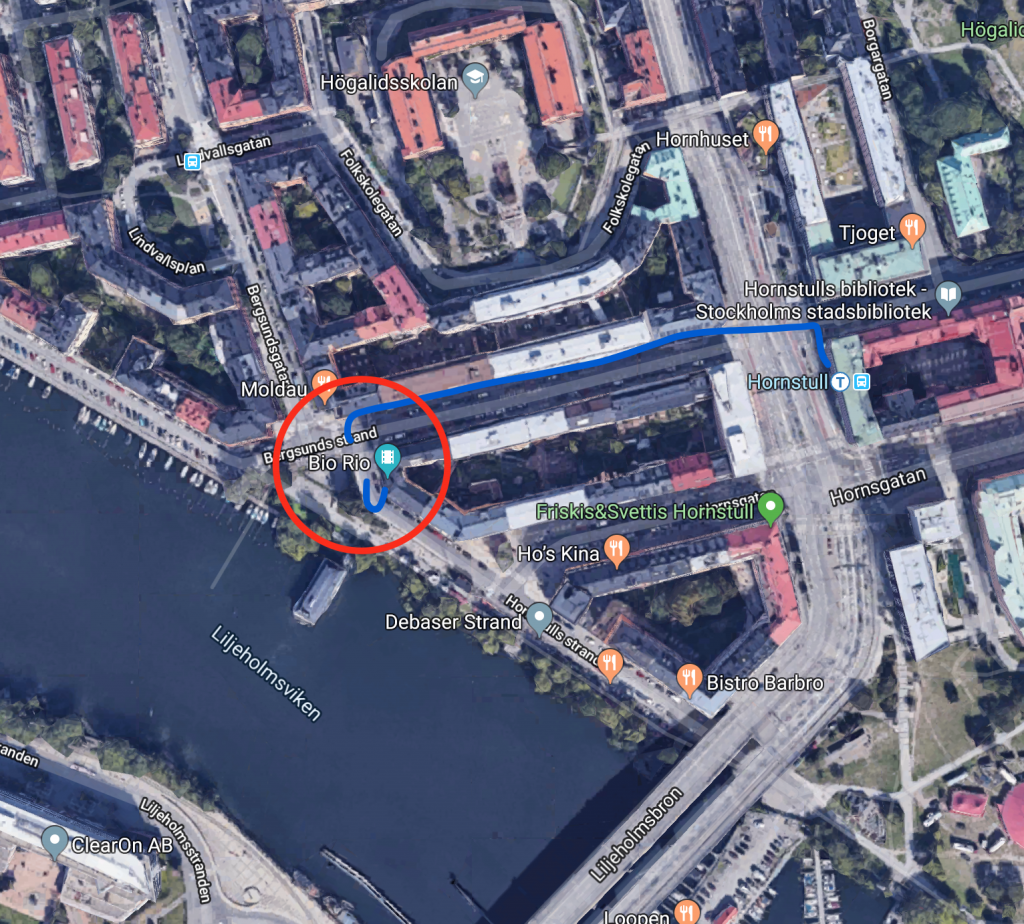
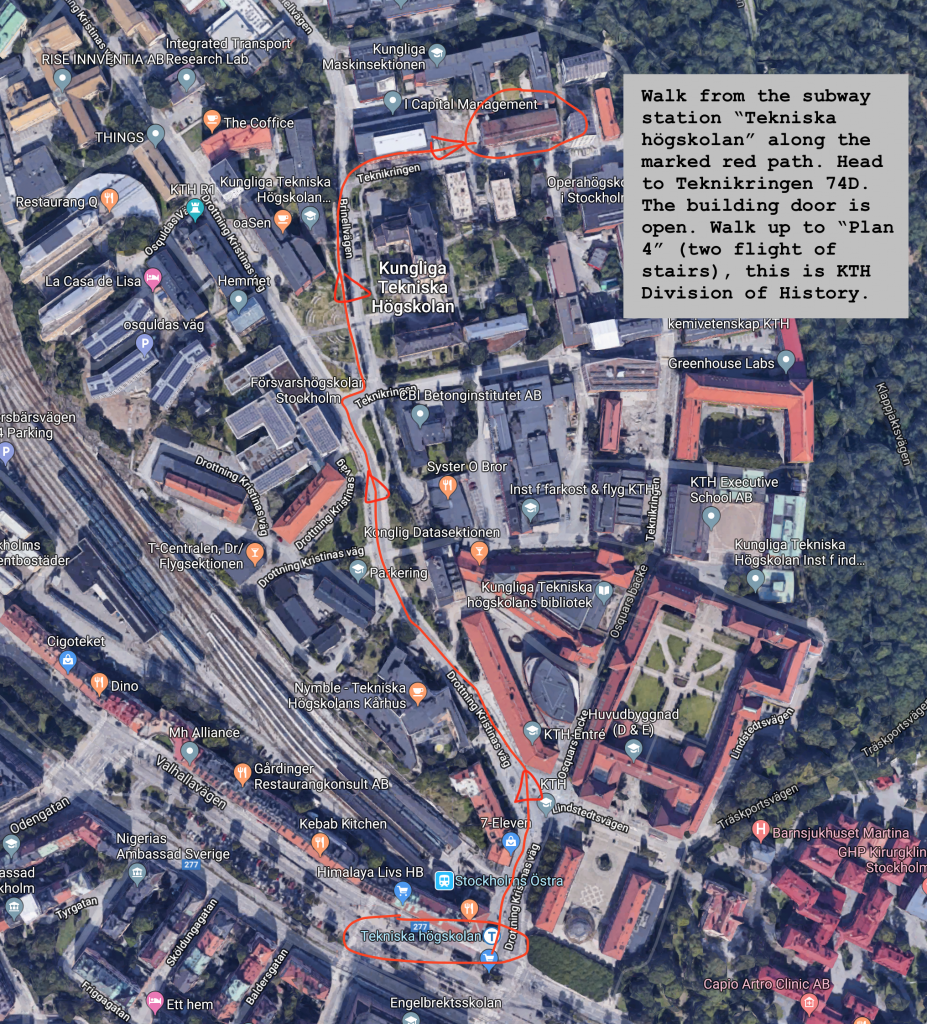
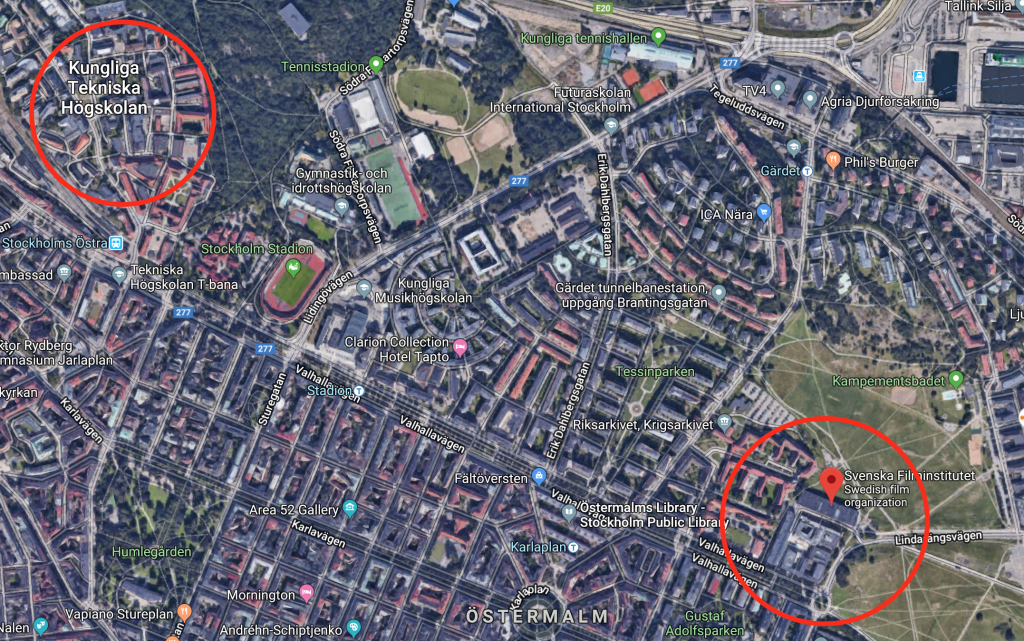
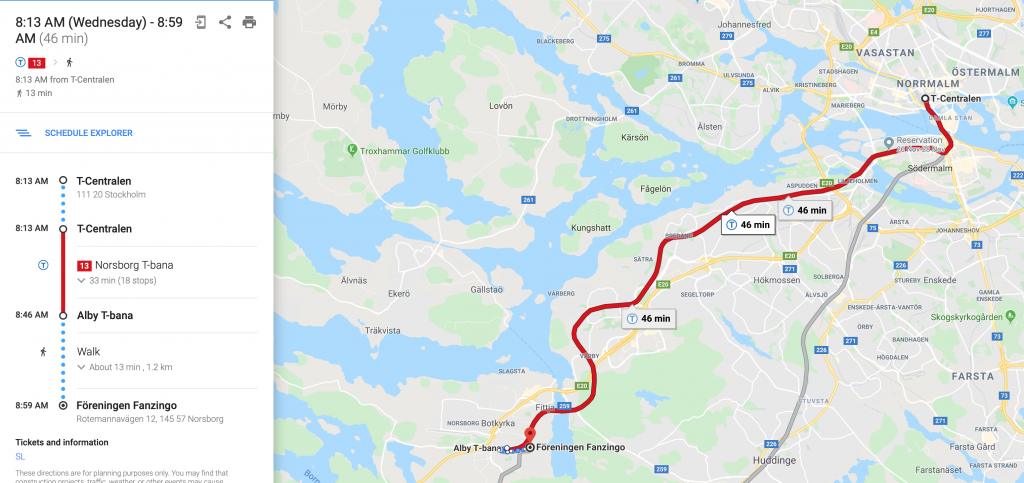
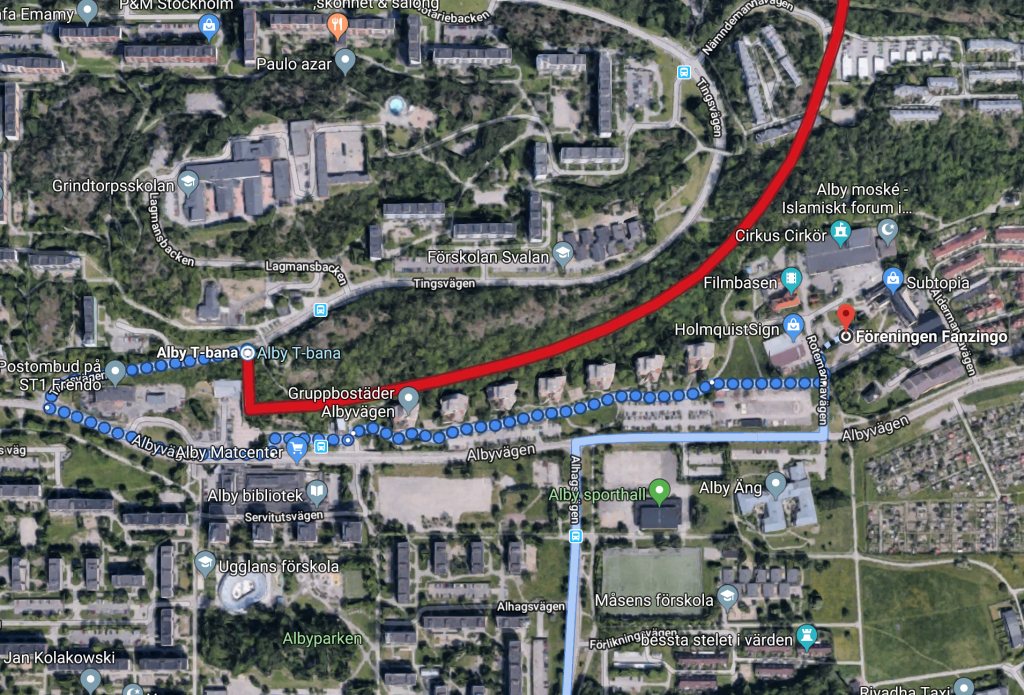
Short on the organizers
Andrés Fabián Henao Castro is Assistant Professor of Political Science at the University of Massachusetts Boston. Before joining UMB, he was the Karl Lowenstein Fellow at Amherst College, and currently holds a Post-Doctoral Fellowship at the Academy of Global Humanities and Critical Theory at the University of Bologna. His research deals with the relationships between ancient and contemporary political theory, via the prisms of decolonial theory, performance philosophy, and poststructuralism. His current book manuscript criticizes the theoretical reception of Sophocles’ tragedy, Antigone, in democratic theory, queer theory, and the theory of biopolitics by foregrounding the settler colonial logics of capitalist accumulation by which subject-positions are aesthetically distributed in the play and its theoretical reception. His research has been published in Theoria, Theory & Event, Representation, La Deleuziana, Theatre Survey, Contemporary Political Theory, Hypatia: A Journal of Feminist Philosophy, among others. He is also a member of the international research network Performance Philosophy and a columnist for the online journal of political analysis, Palabras al Margen (Words at the Margins), in which he has published extensively on the relationship between politics and aesthetics. For more information, see here.
Henrik Ernstson is Lecturer in Human Geography at The University of Manchester, affiliated to the KTH Environmental Humanities Laboratory in Stockholm and Honorary Associate Professor at the African Centre for Cities, University of Cape Town with a previous postdoctoral fellowship at the Department of History, Stanford University. He combines political ecology, radical democratic theory and ethnographic practices in his study of urban environmental politics. With co-workers he has developed a situated approach to urban political ecology and founded The Situated UPE Collective and The Situated Ecologies Platform. His recent books include “Urban Political Ecology in the Anthropo-Obscene: Interruptions and Possibilities” (Routledge, 2019; edited with Erik Swyngedouw) that elaborates radical democratic theory in relation to the environmental crises; and “Grounding Urban Natures: Histories and Futures of Urban Ecologies” (Cambridge: MIT Press, 2019; edited with Sverker Sörlin), which combines postcolonial theory and urban environmental studies. He is also developing with Dr. Jacob von Heland a film-based critical research practice, releasing in 2018 the internationally acclaimed cinematic ethnography film “One Table Two Elephants” (84 minutes, 2018, Copenhagen International Film Festival, CPH:DOX) that elaborates the ontological politics of nature in a settler colonial city. His work has been published in Antipode, Environment and Planning A, Theory, Culture & Society, and Urban Studies, among others. See here for publications and profile.
Ashley J. Bohrer is Assistant Professor at the Kroc Institute for International Peace Studies at the University of Notre Dame. She is a feminist, activist, writer, translator, teacher, and philosopher based in Chicago and explores in her academic work the interstices of philosophy, critical race studies, decolonial theory, intersectional feminism, and Marxism. She holds graduate degrees in both Philosophy and Women, Gender, and Sexuality Studies. She has studied, taught, or held research positions in the United States, France, China, and Germany. In addition to her academic work, Ashley is a committed organizer who works with, among other organizations, International Women’s Strike US, the Center for Jewish Nonviolence, and Jewish Voice for Peace. Her book, Marxism and Intersectionality: Race, Gender, Class and Sexuality Under Contemporary Capitalism (Transcript, 2019) explains how many of the purported incompatibilities between Marxism and intersectionality arise more from miscommunication rather than a fundamental conceptual antagonism. For more information, see here.
Jacob von Heland is a Research Fellow at the KTH Environmental Humanities Laboratory, co-director of the Situated Ecologies Platform and programmer and Chief Editor of Crosscuts film festival. He is developing a film-based practice in the environmental humanities with previous research in Madagascar, Thailand, South Africa and Kenya. His latest film (with Henrik Ernstson) was the cinematic ethnography “One Table Two Elephants” (84 minutes, 2018, Copenhagen International Film Festival, CPH:DOX) on ontological politics in a settler colonial city. Currently he is editing the essay film “Provincializing Malfeasance” set in eThekwini-Durban (2020, with H. Ernstson) that interrogates the notion of property and owning in settler colonial societies. He teaches cinematic ethnography, human ecology, and science and technology studies.
